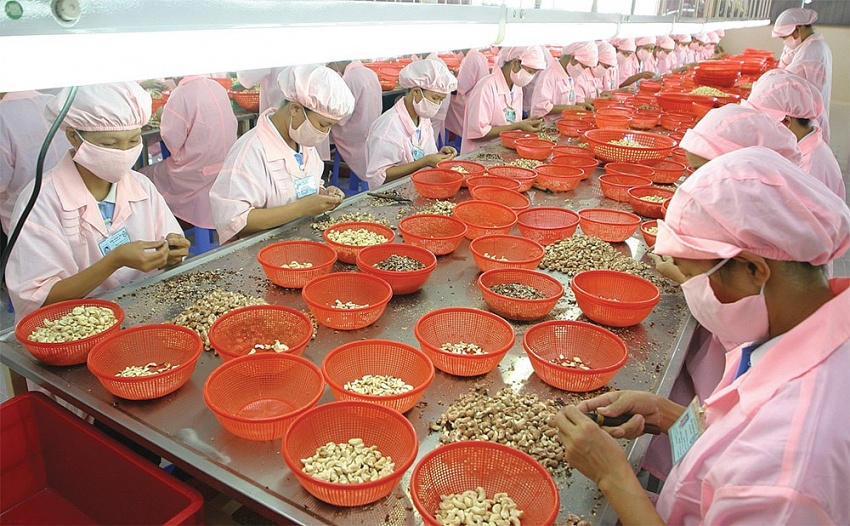Confidence boost priority for business
The National Assembly Economic Committee (NAEC) last week asked the government to apply more feasible solutions to assist the business community, where confidence remains weak.
 |
| Confidence boost priority for business, illustration photo/ Photo Le Toan |
“Production and business activities are still bogged down in great difficulties. The number of businesses withdrawing from the market (86,400) is higher than that of businesses joining and re-joining (81,300),” noted the NAEC on the January-April figures released by the Ministry of Planning and Investment (MPI).
The committee underlined that the government must ensure there will not be any shock for the public, production and business activities, and exports and imports.
“It is imperative now that reform of institution and administrative procedures continue to be boosted strongly, facilitating investment, production, and business activities of enterprises and individuals,” the NAEC stressed.
According to statistics from the General Statistics Office, confidence of enterprises remains feeble. In May, the whole country saw 13,200 newly-established businesses (down 13.7 per cent from April), registered at $3.9 billion (down 47 per cent), and with a total registered worker number of 72,600 (down 23.6 per cent).
As compared to the same period last year, there is an increase of 9.2 per cent in the number of enterprises, but a reduction of 10.1 and 2.7 per cent in registered capital and in the number of registered workers.
In the first five months of this year, the total registered capital inserted into the economy hit $52.84 billion, down 9 per cent on-year. In addition, the number of enterprises leaving the market hit 97,300, up 10 per cent on-year, while the number of newly-established businesses stood at 64,800. On average, each month saw 19,500 enterprises leaving the market.
“This is a burning issue that must need to be given special attention to,” said NA deputy Ha Sy Dong, representing the central province of Quang Tri. “It is strongly suggested that the government must have more thorough analysis and assessment of the situation in order to help enterprises perform better.”
NA deputy Nguyen Van Thi, representing the northern province of Bac Giang, pointed out that the performance of private enterprises and the country’s efforts to lure in private investment capital into the economy remain limited.
According to a government report, non-state investment capital in 2023 hit $79.96 billion, up only 2.7 per cent on-year and tantamount to merely one-fifth of the increase in the 2015-2019 period, Thi cited.
“Also last year, the number of enterprises with halted performance and dissolution was also higher than in 2022. What is more, it has been the first time over the past five years that the number of businesses joining the market in the first four months is lower than the number of enterprises leaving the market,” he said.
The same situation was also seen in the first five months of this year.
“This is a very negative issue impacting the economy,” Thi added. “Thus, it is recommended that the government have more careful and sufficient assessment of enterprise difficulties, especially private enterprises, and have more feasible solutions to support them.”
The latest data from the State Bank of Vietnam showed that as of May 20, the economy’s credit increased by 2.41 per cent as compared to the end of 2023. This is a positive change compared to the 1.6 per cent rise in the first four months, 0.95 per cent in the first three months, and -0.72 per cent in the first two months of the year.
According to the central bank, such low credit growth was mainly due to low demands and weak capital absorption capacity of the economy. In addition, many commercial banks have been cautious in providing loans because of concerns about an increase in non-performing loans due to negative fluctuations in the world economic situation and internal difficulties that negatively impact production and business activities.
“In order for the economy to reach its desired growth goal of 6-6.5 per cent, it is essential that enterprises are facilitated with more favourable and stable conditions. How to revive and strengthen their confidence in expanding production and business activities must be the first and foremost priority now,” said NA deputy Hoang Quoc Khanh, representing the northern province of Lai Chau.
The domestic stock market and corporate bond market are declining in addition to lingering difficulties in the real estate market, especially when it comes to complicated procedures for housing development, Khanh continued.
“It is an imperative now to enact new feasible policies in favour of the public and enterprises. With such poor performance of enterprises, the government’s target of having 1.5 million businesses by 2025 will be difficult to reach,” Khanh said.
| Nguyen Huu Thong, NA deputy, Binh Thuan province
Whether a country is prosperous or not would depend on the growth of that country’s businesses. However, such a weak business situation have been reflecting a reality that needs great consideration. In my opinion, there are several main reasons. Firstly, the global situation has exposed many unstable issues, affecting export and import orders of businesses. Secondly, businesses’ ability to absorb capital has become feeble, and their resilience against shocks has been exhausted in recent years. Thirdly, the country’s policies and legal regulations are still overlapping and inconsistent. I propose that the government have more sound solutions, such as strengthening trade promotion, diversifying export markets, supporting businesses to overcome labour shortages, and developing policies to raise firms’ ability to access and absorb capital, especially newly established and smaller ones. In addition, the government should effectively deploy solutions to improve the business climate, especially cutting down administrative procedures, reducing costs and risks for businesses, and removing problems related to land issues. Nguyen Viet Ha, NA deputy, Tuyen Quang province
Negative actions in countries around the world in recent years have caused disruption to enterprise performance from supply to demand, and from production to consumption, making them quite hard to operate. Businesses are currently lacking orders from the international market. This has been a big difficulty in business activities of enterprises since 2030 and although the situation is improving, it is still a major difficulty for businesses now. According to the General Statistics Office, among the main factors affecting activities of processing and manufacturing enterprises in Q1, the factor of low domestic market demand was low, standing at 5.1 per cent. The factor of low international market demand was also low, accounting for 34.2 per cent. The lack of orders since 2023 has caused businesses to shrink production, cut labour, and even dissolve because they no longer have enough strength to endure. Domestic consumer demand has increased at a low level. On average, in the first five months of 2024, total revenues from retail and consumer goods and services are estimated to increase by about 8.7 on-year, while the same period last year saw an on-year rise of 12.3 per cent. If inflation is excluded, the rise was 5.2 per cent as compared to the same period last year, when the rate rose 9.3 per cent. Nguyen Dai Thang, NA deputy, Hung Yen province
There needs to be good policies to create a breakthrough in processing and manufacturing development. This industry is the decisive factor in the growth of the entire industrial sector, creating great added value for the industrial sector. It is also the main driving force for our country’s economic growth in many years. I propose that there should be more mechanisms and laws to promote rapid development of processing and manufacturing so that it will become a sustainable pillar of the economy and a foundation and impetus for growth of the entire economy. It is recommended to research and pilot a number of breakthrough policies to promote the development of emerging industries and new effective business models. Special importance must be paid to developing important industrial sectors and supporting industries. A priority must be placed on developing a number of key industries, new technology, and high-tech industries such as chip production, semiconductors, and mineral exploitation and processing. |
 | Empowering Vietnamese businesses to succeed in global business landscape Job van der Voort, CEO and co-founder of Remote - a global platform to support businesses in HR management, highlights how the company can support organisations and businesses to tackle the talent conundrum. |
 | VIR to host talk show on tax amendments to promote business activities A talk show themed “Tax Amendments to Promote Business Activities” will be held by VIR on June 14 to provide insights into amended tax regulations. |
 | ADB greenlights $80 million loan package for LPBank to finance woman-owned businesses The Asian Development Bank (ADB) and Lien Viet Post Joint Stock Commercial Bank (LPBank) on June 12 signed a financing package of up to $80 million to expand access to finance for a women-owned small and medium-sized enterprises (WSMEs) project in Vietnam. |
What the stars mean:
★ Poor ★ ★ Promising ★★★ Good ★★★★ Very good ★★★★★ Exceptional
Related Contents
Latest News
More News
- A golden time to shine within ASEAN (February 19, 2026 | 20:22)
- Vietnam’s pivotal year for advancing sustainability (February 19, 2026 | 08:44)
- Strengthening the core role of industry and trade (February 19, 2026 | 08:35)
- Future orientations for healthcare improvements (February 19, 2026 | 08:29)
- Infrastructure orientations suitable for a new chapter (February 19, 2026 | 08:15)
- Innovation breakthroughs that can elevate the nation (February 19, 2026 | 08:08)
- ABB Robotics hosts SOMA Value Provider Conference in Vietnam (February 19, 2026 | 08:00)
- Entire financial sector steps firmly into a new spring (February 17, 2026 | 13:40)
- Digital security fundamental for better and faster decision-making (February 13, 2026 | 10:50)
- Aircraft makers urge out-the-box thinking (February 13, 2026 | 10:39)




 Tag:
Tag:

















 Mobile Version
Mobile Version